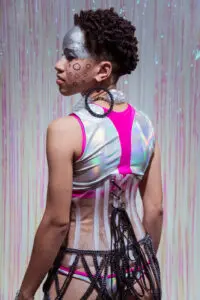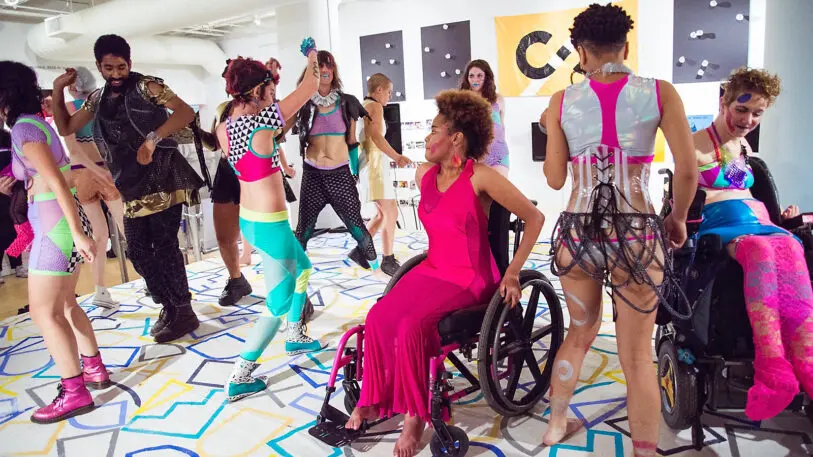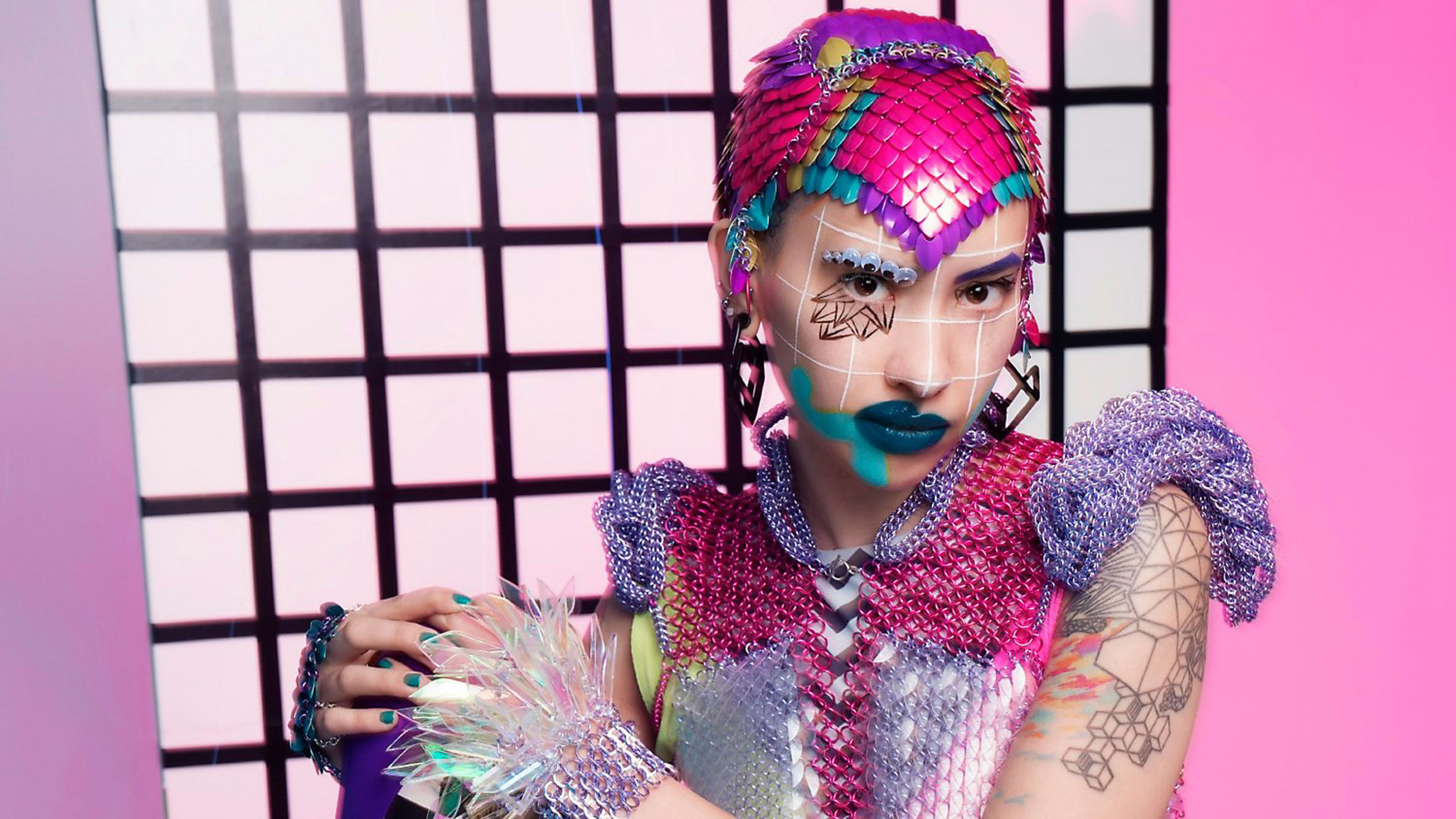For people with disabilities, it can be hard enough to find garments that fit comfortably. Finding fashionable outfits that allow them to express themselves can be close to impossible. This is a particularly painful reality for those who are gender nonconforming, since clothes are a crucial way to convey one’s identity to the world.
This is a struggle that Sky Cubacub, a genderqueer differently abled person, understands well. The 28-year-old Chicago-based designer, who uses the pronouns they and them, is the founder of a label called Rebirth Garments that makes fashion-forward clothes designed to adapt to different bodies and gender identities.
The six-year-old brand, which is sold online, creates custom garments that are sexy, bold, and colorful, making the person wearing them hard to ignore. And that is precisely the point, Cubacub explains. “People at the intersection of disability and queerness are often made to feel invisible, but I want to ensure that we take up space and are seen,” they say.
Unlike other adaptive apparel brands, which create collections for people with a wide range of disabilities, Cubacub largely creates custom pieces by hand. For now, they do all the work themselves, asking customers questions about how to make the garments as comfortable as possible based on their needs, along with their style preferences and gender expression. But Cubacub also makes a small number of off-the-rack items, like binders that flatten the chest and feature triangle patterns and gold trim, body-fitting swim shorts designed to be worn out, and sheer garments that reveal parts of the body that are more typically hidden. “I want the person wearing the clothes to feel comfortable in their own skin,” Cubacub says.
Over the past few years, Cubacub’s work has been recognized by the art community. This year, the Ford Foundation awarded the designer its Disabilities Futures Fellowship, a $50,000 grant that elevates the voices of talented artists with disabilities. Last year, Cubacub received a Kennedy Center Citizen Artist Fellowship. And in 2018, Cubacub was named Chicagoan of the Year by the Chicago Tribune.
But Cubacub has been pursuing this work for more than a decade. It began at the start of high school: Cubacub has a stomach condition that made it hard to find clothes that don’t cause pain on their torso, much less convey their queerness. There were few brands making adaptive clothing for people with disabilities; those that did focused on making functional pieces. “The aesthetic tended to be professional, like khakis and polos, to allow people with disabilities to look presentable in the workplace,” Cubacub says.

After high school, Cubacub attended the School of the Art Institute of Chicago to study fashion design and eventually took a lingerie-making class. But they struggled to convince others that people with disabilities also wanted—and needed—sexy garments. “Disabled people are so desexualized in our culture that people can’t process that they even have a sexual orientation,” they say. “When people first heard me talk about it, they thought I was saying that queerness was a disability, which is not at all what I meant. It showed me just how foreign it was to think of people with disabilities as sexual beings.”
This prompted Cubacub to write a thesis called “Radical Visibility: A QueerCrip Dress Reform Movement Manifesto,” which lays out their ideology and has since been reprinted as a zine. Cubacub uses the term queercrip to reclaim words that have been used to marginalize gender nonconforming people with disabilities. The manifesto is designed to empower Cubacub’s followers and fans, but also to shift the way society—and the fashion industry—responds to so-called queercrips.

Recognize your brand’s excellence by applying to this year’s Brands That Matter Awards before the early-rate deadline, May 3.
